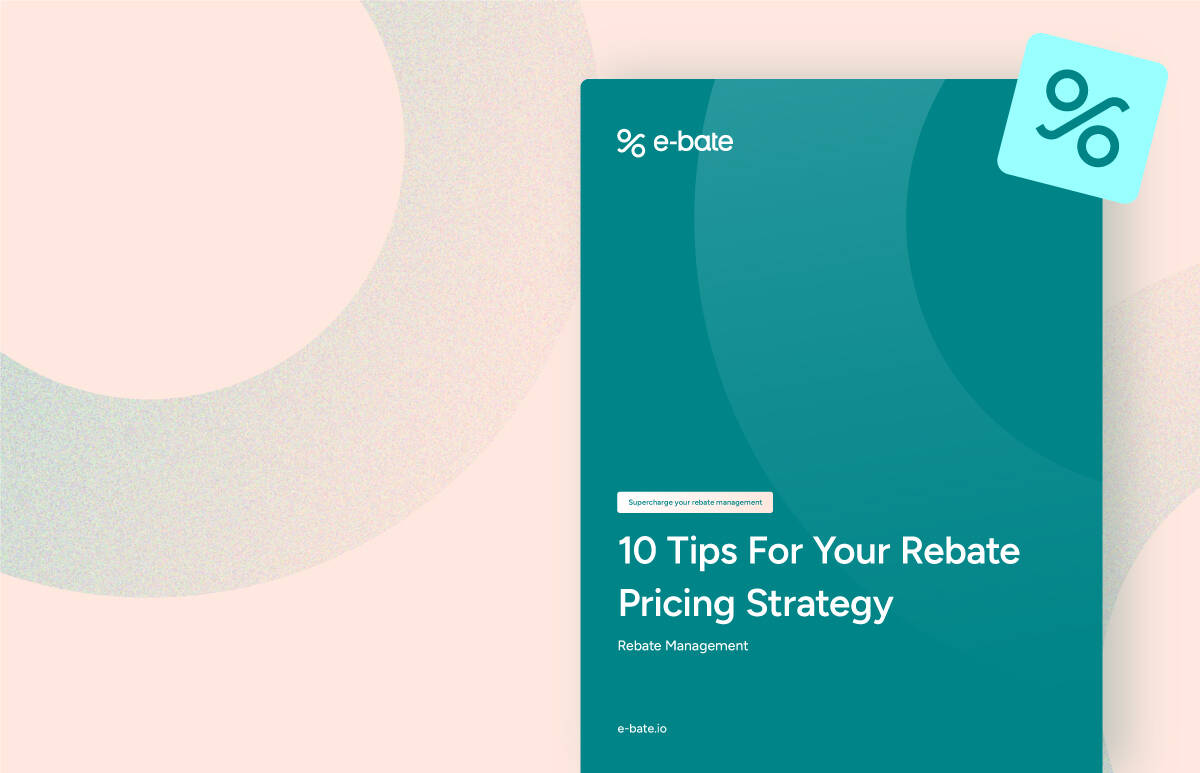Alright, let’s talk about B2B rebates. You know, those deals that often get a bad rap? Often misunderstood and viewed with skepticism, rebates are sometimes associated with complexity, opacity, and even suspicion of manipulation, meaning some businesses avoid them altogether. But, with new technology now available such as intelligent rebate management platforms, rebates are getting a chance to turn things around and debunk these misconceptions to transform rebates into a transparent, trackable, and strategic tool for businesses.
In this blog, we’ll dig into why B2B rebates have earnt a bad reputation and how these automation platforms can make them safer and beneficial for all stakeholders involved.
Why B2B Rebates Get a Bad Rap
What’s with all the Mystery?
First off, one of the primary reasons behind the negative perception and lack of trust around B2B rebates is because they’re like a secret club – You never really know what’s going on behind the scenes. Traditional rebate systems and processes such as in-house spreadsheets keep everything hush-hush, leaving buyers and sellers scratching their heads about how the heck their rebate amounts are even calculated, let alone eligibility criteria, and the actual amounts owed. This opacity breeds distrust and suspicion among buyers and sellers alike, leading to a perception of rebates as a tool for confusion rather than value creation. Without an automated, trackable rebate process, it’s like trying to solve a puzzle without all the pieces, and that’s just frustrating.
The Hassle Factor
Manual rebate management processes are notorious for the hassle surrounding their complexity and inefficiency. Dealing with rebates the old-fashioned way with ageing systems or rudimentary spreadsheets is slow, prone to errors, delays, and inconsistencies, further exacerbating the negative perception of rebates.These issues make it challenging for businesses to track and reconcile their rebate obligations accurately, leading to frustration and dissatisfaction among stakeholders.
Potential for Abuse
Last but by no means least, there’s the trust issue and the potential for abuse or manipulation of rebates. When the rules are fuzzy and the process is a pain, it’s easy to start wondering if someone’s taking advantage. In traditional or inefficient rebate systems, there is a risk that unscrupulous parties may exploit loopholes or engage in fraudulent activities to maximise their rebate benefits at the expense of others. This perceived lack of fairness and integrity undermines trust in the rebate process and reinforces the notion of rebates as a dubious business practice. Without clear rules and oversight, it’s hard to know if everyone’s playing by the same rules. And that’s a recipe for suspicion.
De-villainizing Rebates through Intelligent Rebate Management Platforms
Let’s Shed Some Light
Like turning on a torch in a dark room, intelligent rebate management platforms leverage advanced technology, such as data analytics and automation, to bring unprecedented transparency and visibility to the rebate process. With rebate automation all the rebate info is right there in front of you, no more guessing games or ‘shady deals’. Transparency is the name of the game, and it’s a game-changer. By centralising rebate data and providing real-time access to relevant stakeholders, these platforms enable buyers and sellers to understand the terms, conditions, and performance metrics associated with their rebate agreements. This transparency encourages trust and confidence in the rebate process, dispelling the notion of rebates as opaque or manipulative.
Streamlining the Process
Put simply, intelligent rebate management platforms take care of all the grunt work for you. By automating key rebate management tasks, such as data capture, validation, and calculation, intelligent rebate management platforms streamline the rebate process, reducing errors, delays, and administrative overhead. Through seamless integration with existing ERP systems and workflow tools, these platforms enable businesses to automate rebate workflows, track rebate accruals, and generate accurate reports with ease. This enhanced efficiency and accuracy not only improve the overall rebate experience but also demonstrate the value of rebates as a strategic business tool.
Compliance and Auditability
Intelligent rebate management platforms incorporate robust controls and audit trails to ensure compliance with rebate agreements and regulatory requirements. By recording all rebate-related transactions and activities in a secure, tamper-evident environment, these platforms provide assurance to both buyers and sellers that rebate calculations are fair, accurate, and auditable. Moreover, by facilitating proactive monitoring and enforcement of rebate compliance, these platforms mitigate the risk of fraud or abuse, further enhancing trust in the rebate process.
Conclusion
While B2B rebates have historically been viewed negatively due to issues of transparency, complexity, and potential for abuse, the emergence of intelligent rebate management platforms presents an opportunity to de-villainise rebates and transform them into a strategic business tool. By providing transparency, efficiency, and auditability, these platforms enable businesses to leverage rebates as a value-added mechanism for driving sales, incentivising performance, and fostering mutually beneficial relationships with trading partners. As businesses embrace the transformative power of intelligent rebate management platforms, rebates will shed their negative stigma and emerge as a trusted and integral component of B2B commerce.
Contact us for a demo of our intelligent rebate management software here.




